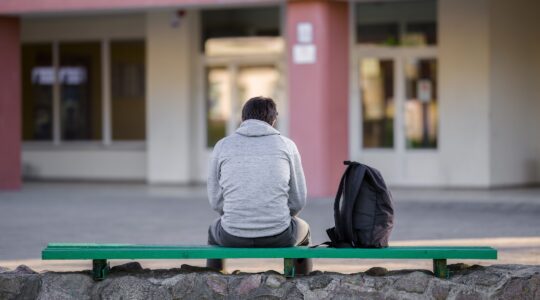It took filmmaker Robert H. Lieberman 50 years to return to his hometown neighborhood of Kew Gardens. But when he finally did, he found that his old friends and classmates — who were raised in the shadow of the Shoah — had grown up to make big contributions to American society.
Lieberman is the director and producer of “Last Stop Kew Gardens,” a documentary film that tells the story of first-generation American children raised by their Holocaust survivor parents in the leafy Queens neighborhood after World War II (kewgardensmovie.com). It airs April 22 at 10 p.m. on WLIW21 in honor of Yom HaShoah, Holocaust Remembrance Day. Lieberman interviews figures such as popular television host Jerry Springer, comedian Robert Schimmel, writer Joshua Brand and former “Today Show” correspondent Rona Elliot.
“A lot of very talented people came out of that environment,” said Lieberman, who traveled the world to shoot footage for the film.
But in the 1940s and ‘50s, the Holocaust survivors who settled in Kew Gardens had, in a sense, finally stopped traveling.
“It’s called the last stop because that’s where they all ended up — it was the last stop for these people, for refugees and survivors,” said Lieberman, who is also a novelist and teaches physics at Cornell University.
“It’s really a part of the history of New York,” he said. “I think it’s the story of every immigrant group, about how we became absorbed, how these children were brought into the American melting pot.”
Springer stresses the point in the film. “[My parents] were determined that I would become an American boy, and that meant I would join the Little League, the Boy Scouts, that I would get to go to camp, get to go away to college.”
Many of the film’s subjects said their parents’ outlooks on life were greatly affected by what they had gone through. “Having to be prepared to uproot yourself from one moment to the next, because your enemies could be after you — that kind of permeated his life and what he taught us,” Dr. Daniel Ein, a noted physician, said of his father. Ein said in the film that he went into medicine after his father — using an apt argument for a Holocaust survivor — urged him that it could be practiced anywhere, no matter where the family might be forced to go.
The New York Jewish Week brings you the stories behind the headlines, keeping you connected to Jewish life in New York. Help sustain the reporting you trust by donating today.




